How does Google treat content written by AI? [Results of the experiment]
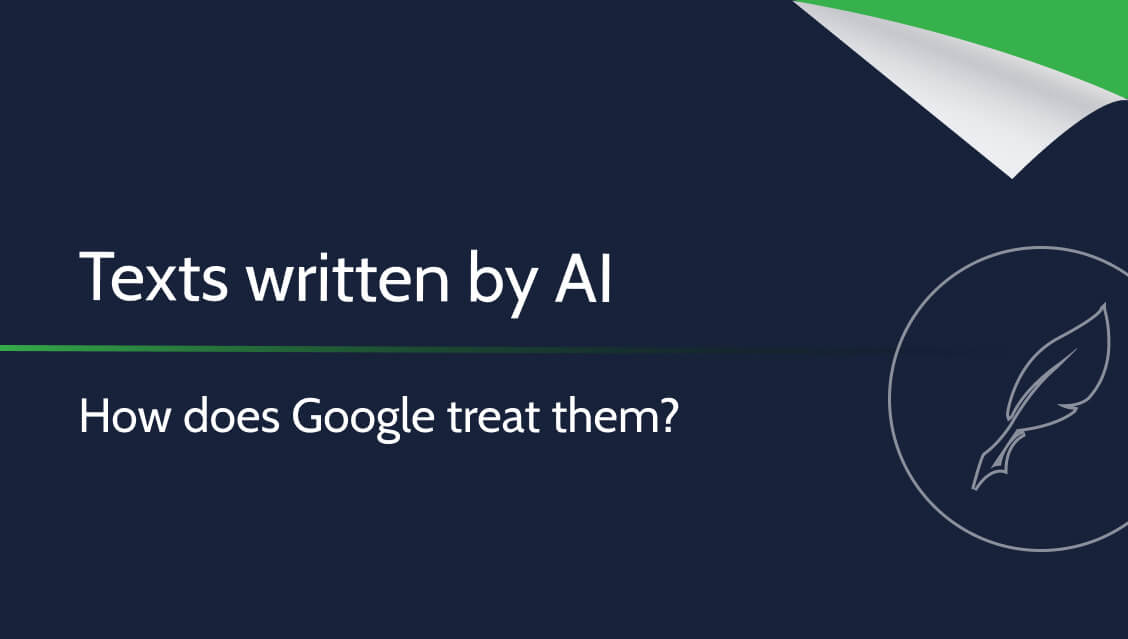
Google is faced with a difficult challenge. It needs to react to the generic content created by AI, which is still increasing on the Internet. Should it index these or not? Fortunately, we no longer have to guess – we’ve conducted an experiment, the results of which we discuss below.
AI content rating by Google
On behalf of Content Writer, our research team conducted an experiment aimed at assessing how Google search engine bots treat AI content.
Experiment goal
Checking the visibility of articles created by artificial intelligence.
Duration
From May 30, 2023 to June 30, 2023.
Methodology
For the test, we used two actively operating Polish sites: content-seo.pl and contentmarketingowy.pl. On the former, we published 100 AI articles every other day, resulting in a total of 1400 articles. On the second site, we focused on quality through additional editing – thus, we inserted only 6 articles per week, resulting in a total of 50 articles.
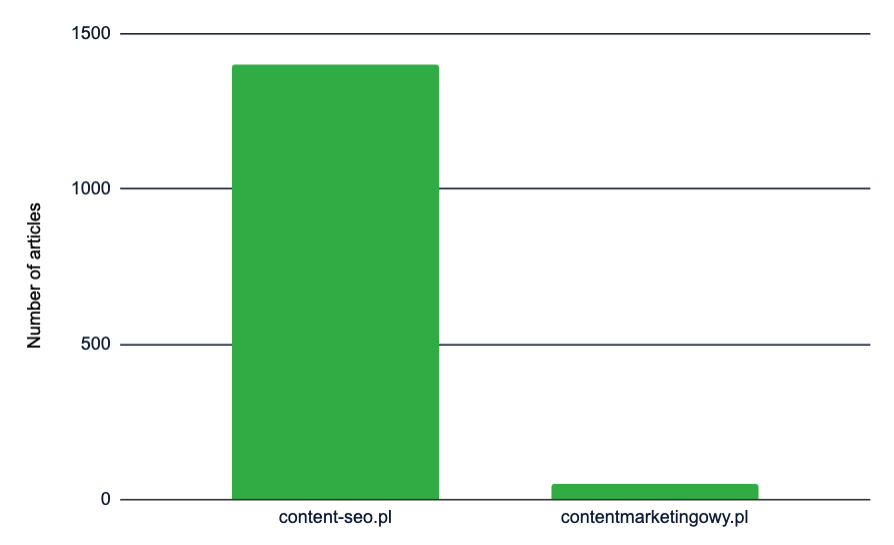
The AI engine used for the experiment was GPT-3-5-turbo. The prompt looked as follows:
“Create a substantive Polish article of at least 1000 words on the topic ‘[title]’. Arrange the article using H2 headers, without an H1 header and without a title. Add an introduction. Make sure the content is instructive and provides the reader with valuable insights. Bold the entire first paragraph with the <strong> tag. Frequently use unordered lists with <ul> and <li> tags. End with a summary with the <h2> tag, which connects the most important conclusions from the article. The writing style should be accessible, intended for a blog.”
All topics and content were related to the copywriting industry in line with the themes of both sites. They were 100% developed by AI – during editing on the second portal, we only removed language errors. Thanks to the Cron Job configuration, the articles were created autonomously “in the background”, without our involvement.
Results
On both portals, there was a visible increase in the number of views in the first days of publication – then the results quickly returned to the initial value.
(For context, we show results from the beginning of May, a month before the experiment started.)
Content-seo.pl
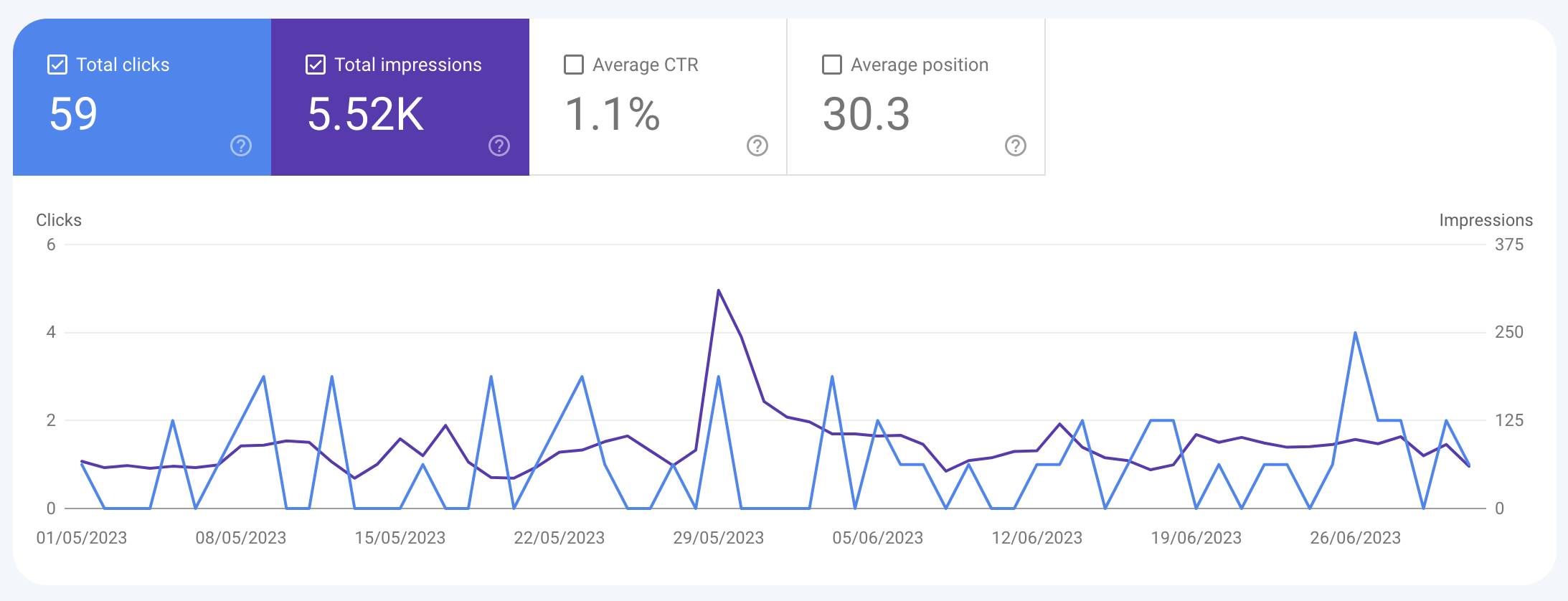
Contentmarketingowy.pl
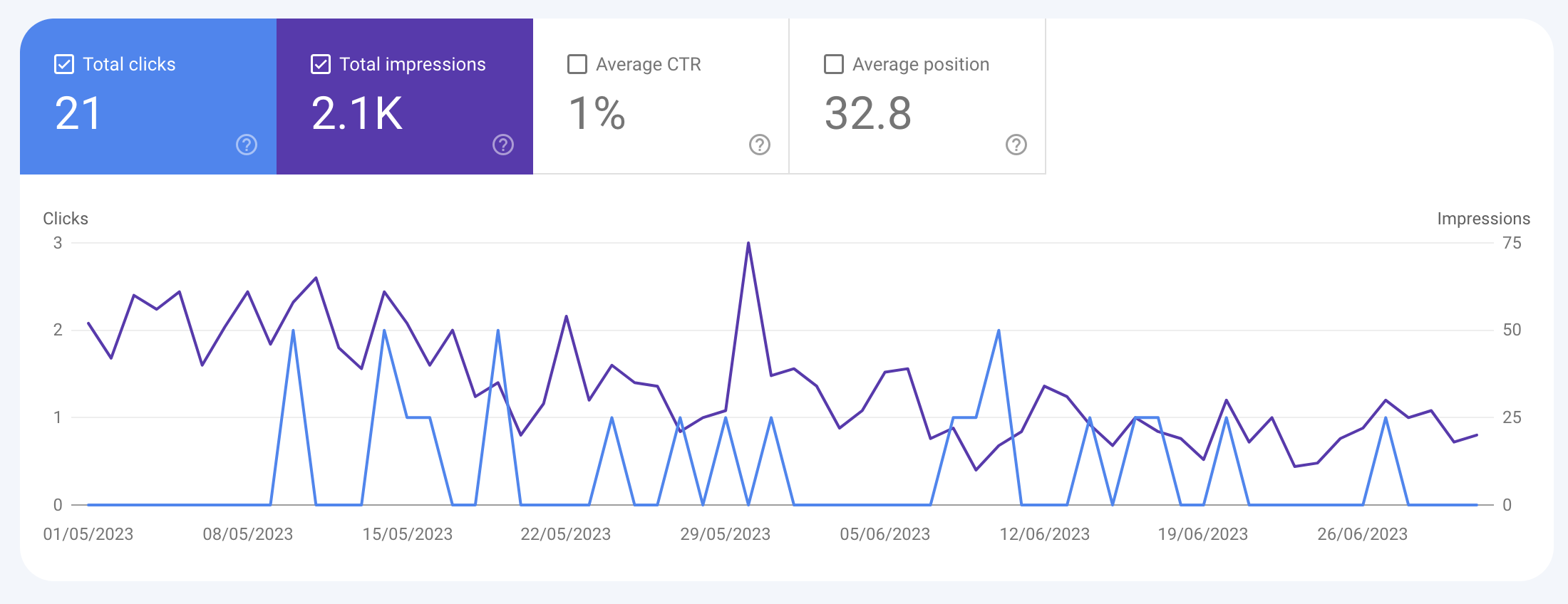
Articles are consistently indexed, although almost all of them occupy a position outside the TOP 100 results, which does not translate into clickability.
Content-seo.pl
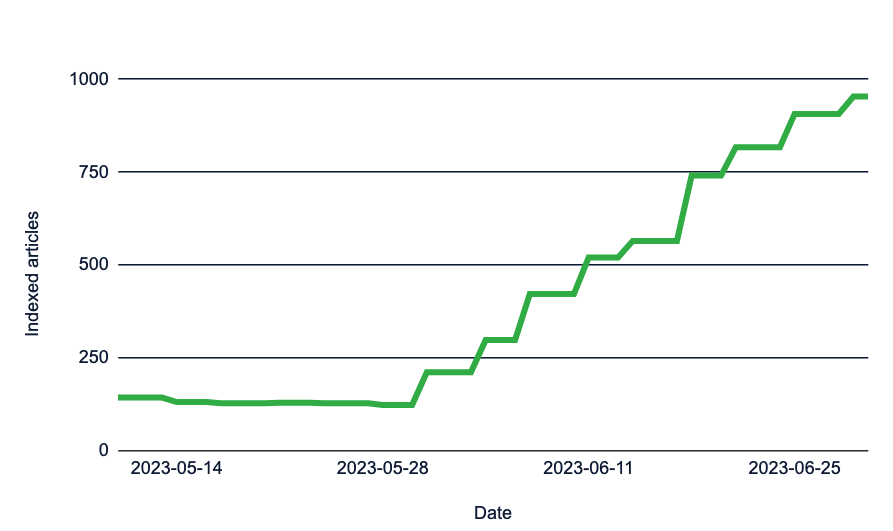
Contentmarketingowy.pl
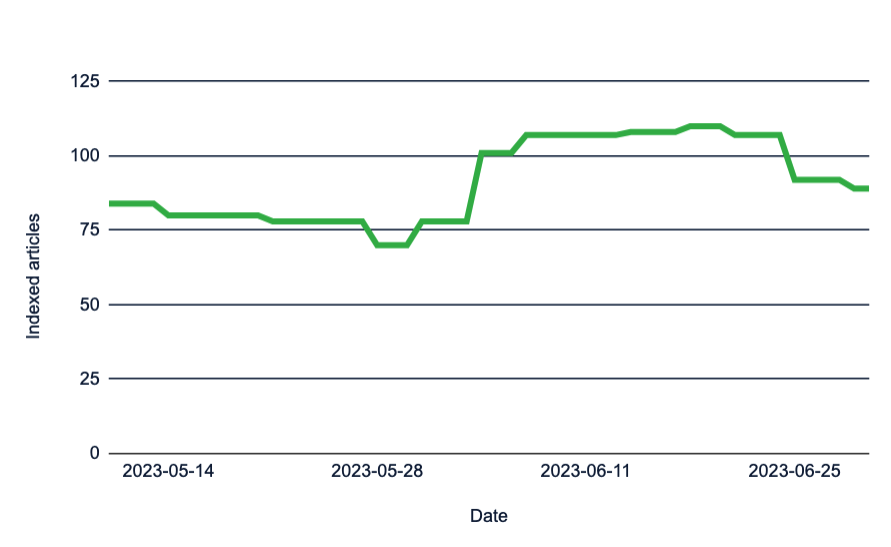
Conclusions
Articles created by AI are indexed on Google, but they do not generate any traffic on the site. We did not record an impact on clickability, even despite the large number of articles (1400).
Such a quantity of human-written content usually results in measurable results that attract thousands of users. Apparently, Google negatively evaluated the articles written by AI – even when they were additionally edited.
A large number of articles outside the TOP100 has an additional side effect: it lowers the average position of the site in search results. This limits the possibility of taking high positions in the future. Therefore, it is worth considering the consequences of such action, which may reflect in worse positioning even in subsequent years.
However, it should be noted that SEO is a continuous process, and our experiment has just ended. The results may change, and we will immediately update this publication if they do.
















Leave a Reply